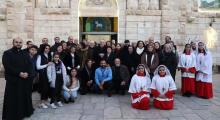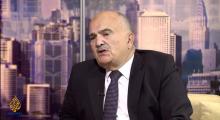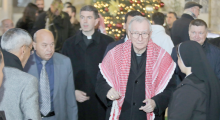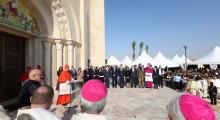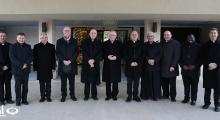Issued by the Catholic Center for Studies and Media - Jordan. Editor-in-chief Fr. Rif'at Bader - موقع أبونا abouna.org
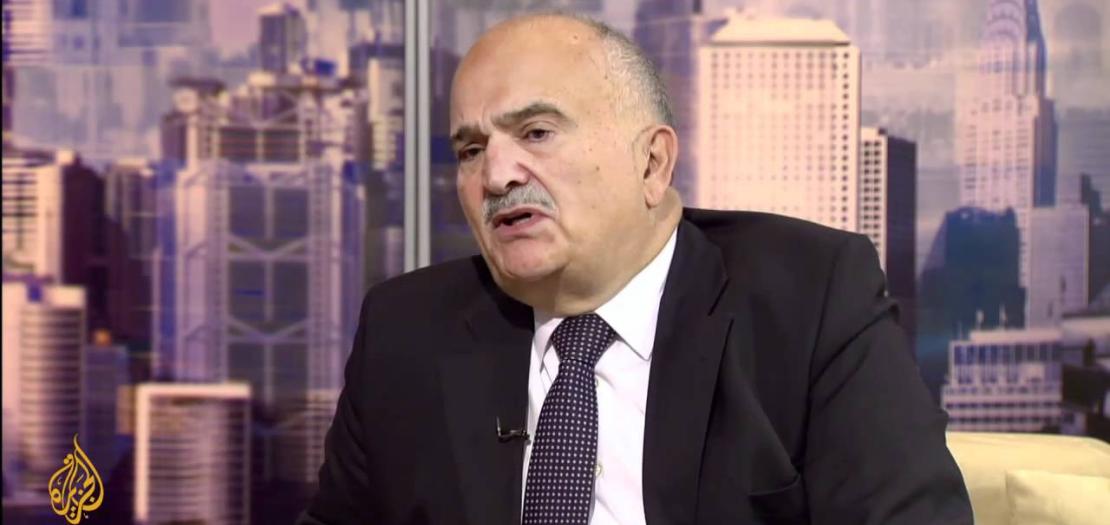
As we welcome the new year, we hope it will be a time of prosperity, marked by peace and tranquility. This hope holds particular significance in a world increasingly characterized by harshness, polarization and the spread of hatred amidst conflicts, wars, crises and natural disasters. These challenges have widened the gap between humanitarian needs and available resources, emphasizing the urgent need to reconsider the optimal way to address these needs.
The Qur'an tells us that doing good is the path to a fulfilling life: ﴾Whoever does righteousness, whether male or female, while being a believer —We will surely cause him to live a good life﴿. This “good life” is the aspiration of every believer. Hope empowers individuals to face crises and persevere. Its importance extends beyond religious belief, serving as a vital necessity for resilience and strength.
Today, we witness a clear decline in the values of justice and compassion within our societies. The “right of might” has overshadowed the “might of right”, where powerful nations oppress and occupy, defy the law, evade accountability and impose conditions on vulnerable nations burdened by debt and poverty.
In this context, a pressing question arises: How can we speak of human solidarity in a world where values have been distorted, human dignity is undermined, aggressors are celebrated, and the oppressed are punished?
There is an urgent need for a moral and cultural transformation, coupled with a thorough re-evaluation of the concepts of justice, rights, freedom and humanity. Charitable acts alone are insufficient to drive meaningful change. Emotional solidarity, while important, cannot alleviate the suffering of the marginalized. Instead, they must be empowered socially, educationally, medically and psychologically. This requires the establishment of effective institutions dedicated to fostering Islamic and human solidarity through mutual support and cooperation.
True human solidarity is built on the respect for human dignity, pluralism and diversity — values that stand in stark contrast to polarization and hatred. Policies must prioritize human dignity and promote respect for others’ identities. Achieving sustainable social and economic development within the Arab and Islamic societies requires integration and solidarity, enabling the cultural and structural changes necessary to overcome crises.
We must reflect on critical global challenges and adopt humanitarian principles to create a new global system that upholds human dignity and strengthen solidarity among people. This approach is essential to address the challenges facing humanity and its future.
Change begins with embracing human dignity as core educational value, a policy framework and a basis for collective action. This Perspective fosters awareness and reinforces values that define our humanity — compassion, empathy, respect and cooperation. It calls us to engage in humanitarian efforts that advocate for shared human interests, environmental stewardship and accountability for our responsibilities toward the planet.
The advancement of human civilization requires building four fundamental relationships: between individuals and themselves, individuals and other, humanity and nature, and humanity and the Creator. These relationships are grounded in morality, faith, knowledge and actions. Efforts should focus on securing people in their homelands, facilitating the return of the displaced individuals, promoting community investment, and modernizing economies to ensure equitable wealth distribution.
For decades, I have called for the establishment of an institution to coordinate joint projects, provide disaster relief and support economic and social development. Such efforts would contribute to global initiatives aimed at eradicating poverty and deprivation, fostering “effective altruism” that leaves no one behind, and strengthening human brotherhood and social cohesion.
It is time to prioritize regional stability and adopt a vision rooted in integration and harmony between humanity and the environment. This necessitates reassessing priorities at every level — from individuals and communities to states and nations. We must champion responsible freedom as a tool for positive change, fostering awareness, spreading knowledge and promoting citizenship that celebrates diversity. Good governance must guide community development.
Addressing the suffering of vulnerable groups requires humanizing statistics, implementing clear plans and adopting measures grounded in a clear vision. Binding international humanitarian laws are essential to achieving both internal and external peace, replacing exploitation and injustice with solidarity and justice. This shift could also reduce the massive resources allocated to military industries that profit from wars and conflicts.
Our Eastern societies remain vulnerable to external efforts to divide them along ethnic, sectarian, and religious lines. Such attempts exploit their rich diversity, turning it into a source of tension and conflict to facilitate control and subjugation. To counter these efforts, we must build bridges between the four pillars of the region—Arabs, Persians, Turks, and Kurds—while fostering platforms for integration, dialogue, and positive participation. Strengthening mutual understanding and promoting the values of tolerance are essential to resisting these divisive forces.
In conclusion, the peace we seek begins with self-reflection and the discovery of the inner goodness that God has instilled within us. This foundation enables us to challenge misconceptions that justify weakness, regression, and division, setting us on a path toward collective renewal and shared prosperity.


